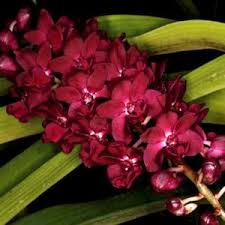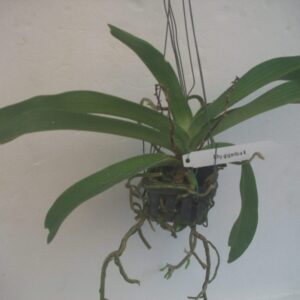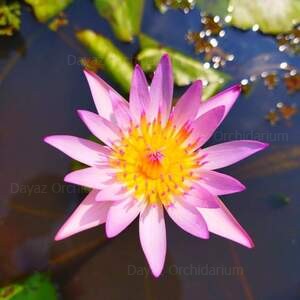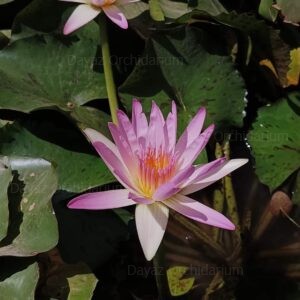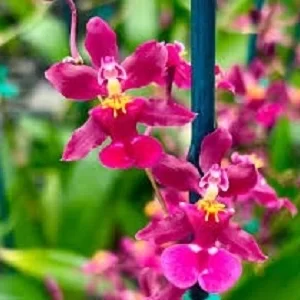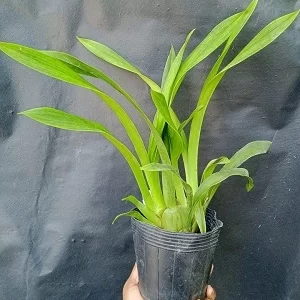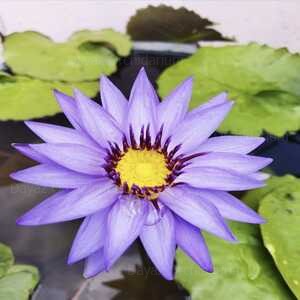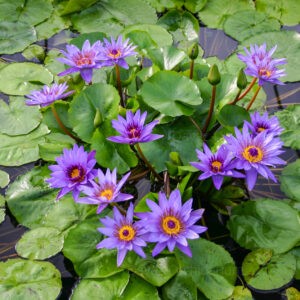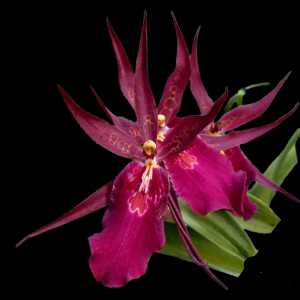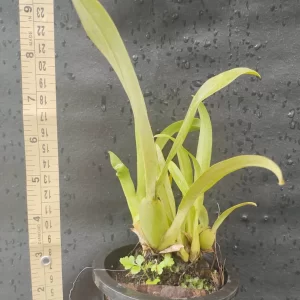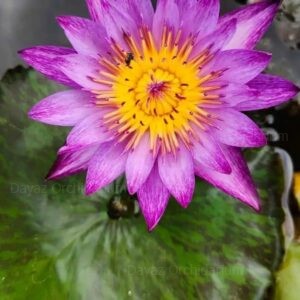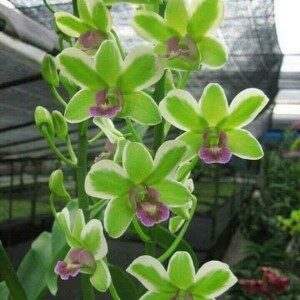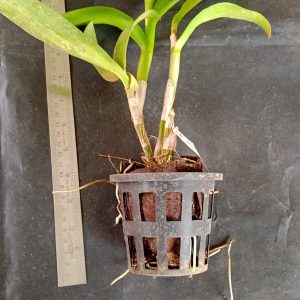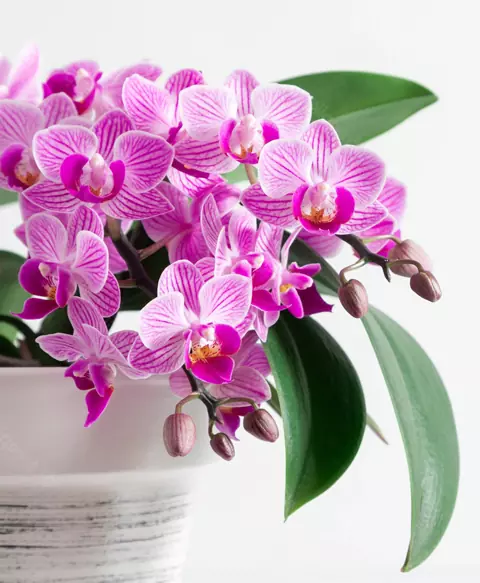Rhynchostylis Gigantea Red produces deep reddish-purple coloured flowers.
Foxtail orchid plants (Rhynchostylis) are named for the long inflorescence that resembles a fluffy, tapering fox tail. The plant is distinctive not only for its beauty and unusual range of colors, but for its spicy aroma that is released in the evening when temperatures are warm.
Rhyncostylis is a genus of orchids that is native to Southeast Asia, including Thailand, Malaysia, and the Philippines. These orchids are epiphytic, meaning that they grow on other plants, and they are known for their beautiful, fragrant flowers that bloom in clusters. Rhyncostylis is a relatively small genus, with only a few species, but they are highly prized by orchid enthusiasts for their stunning blooms and ease of cultivation.
The flowers of Rhyncostylis orchids are typically white or pink, and they have a distinctive shape that is often described as “bottlebrush-like.” Each flower spike can produce dozens of flowers, and they are highly fragrant, with a sweet, floral scent that fills the air. Rhyncostylis orchids are relatively easy to grow and care for, and they prefer bright, indirect light and well-draining potting mix.
In addition to their beauty, Rhyncostylis orchids have also been used in traditional medicine in Southeast Asia. The plants contain compounds that have been shown to have anti-inflammatory and antimicrobial properties, and they are used in traditional medicine to treat a variety of ailments.



